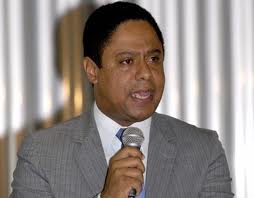March 25 – Brazil Sports Minister Orlando Silva is seeking help from the country’s Congress to simplify bidding processes and speed-up work ahead of the 2014 FIFA World Cup and 2016 Olympics and Paralympics in Rio de Janeiro.
Silva has told a Senate Commission that Congress could help by changing the current rules, thus allowing construction work to be completed in time ahead of both events.
The Government has complained that it faces too many restrictions to get public works under way and would welcome less lenient regulations for work related to the World Cup and Olympics.
Brazil is facing significant challenges upgrading airports, renovating stadiums and improving public transportation, and some recent reports have warned that the slow pace in construction work may lead to missed deadlines.
“The pace of preparation and acceleration is strong, but there is much to be done to fulfill our international commitment,” said Silva.
Upgrades to Brazil’s airports will be opened up to private investment to ensure they are completed in time for the 2014 World Cup, Brazilian President Dilma Rousseff has revealed.
Rousseff told the Valor Economico business newspaper that the Government is getting ready to make “a strong intervention” to fix the nation’s overcrowded airports.
“We will accept investments from the private sector that are adequate to the needed expansion plans,” she said.
“We don’t have any bias on how to increase the investments in that area.”
Rousseff said the Government will allow the private sector to bid for contracts to try to speed up the expansion and renovation of the airports, one of the biggest challenges for the country preparing to host the World Cup for the first time since 1950.
The private sector funds would supplement the public investments already planned to get the airports ready, Rousseff said, adding that a Civil Aviation Ministry will be created to oversee the country’s civil aviation agency and the nation’s airport authority.

The President acknowledged earlier this month that it will be easy to get everything done ahead of the World Cup in less than four years, but claimed she is certain the event will be a success.
Rousseff said the infrastructure investments for the World Cup will reach nearly $20 billion (£12.5 billion), including about $3 billion (£2 billion) in the airports that will handle the more than 600,000 visitors expected to travel to Brazil in 2014.
A recent report from a Government watchdog group warned Brazil about the slow pace of improvements in the airports, and even FIFA has said airport infrastructure is a problem organizers must address.
There are concerns that problems with bidding processes and environmental licensing may cause delays in the upgrades.
Most airports are already struggling to cope with capacity thanks to a rapid increase in the number of passengers as the healthy Brazilian economy creates more travel opportunities for the nation’s growing middle class.
Most of the investments are aimed at improving the airports’ passenger capacity.
The World Cup will be played in 12 cities across Brazil, a large nation that has no adequate ground transportation in most parts of the country.
The International Air Transport Association (IATA) has praised Rousseff’s focus on aviation in a recent statement, but also called for “urgent progress” ahead of the World Cup and Olympics.
It said there is a need for “a quick follow-up with critical reforms to improve the industry’s competitiveness.”
Related stories
March 2011: Time to plan Confederations Cup running out as fears grow over Brazil preparations
March 2011:·Blatter criticises Brazil promises
January 2011:·Rio opens emergency response centre to help keep 2014 World Cup safe
September 2010:·Maracana closed for World Cup facelift
July 2010: FIFA to blame for some delays claims Brazilian Sports Minister

